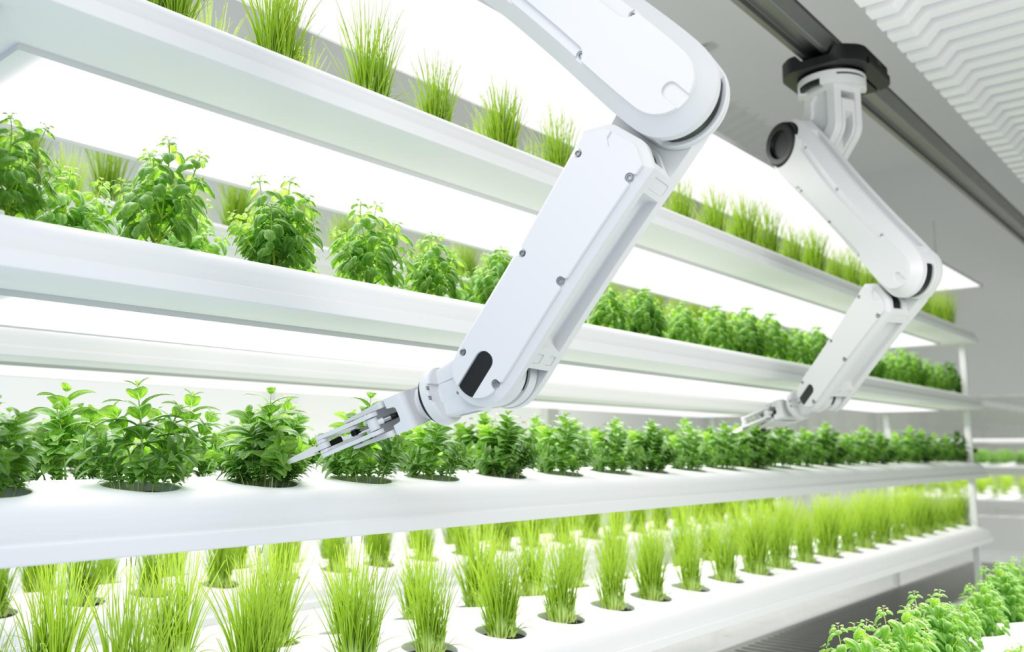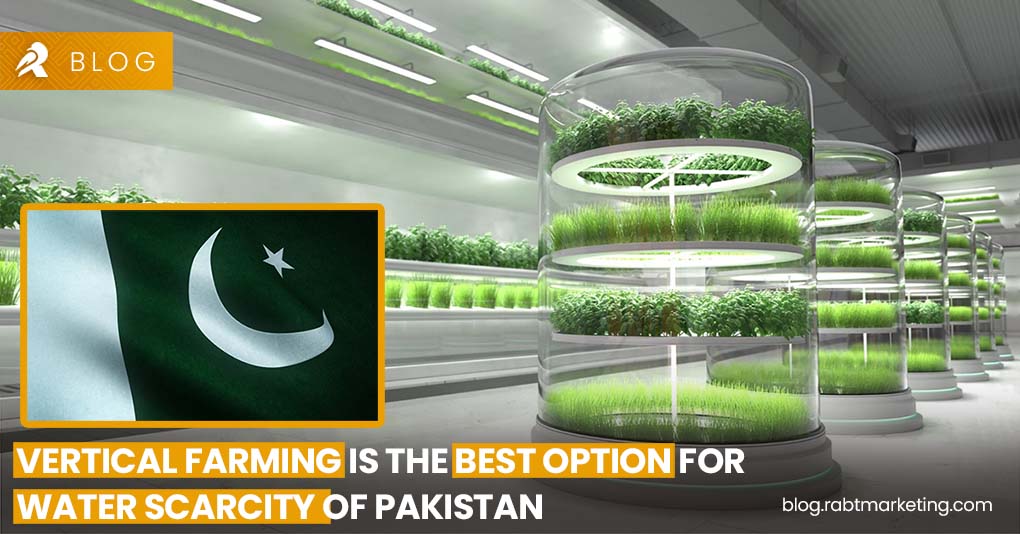What is Vertical Farming?

Year-round availability: Crops can be grown indoors year-round, regardless of season or region.
Less land use: Vertical farming can produce 10 to 20 times more yield per acre than open-field crops.
No pesticides: Crops can often be grown without pesticides.
Controlled environment: Vertical farming allows for precise control over environmental conditions, which can lead to a higher quality and level of production.
Reduced environmental impact: Vertical farming can reduce the environmental impact of food production and the effects of climate change.
Reduced water usage: Vertical farming can use as little as 2-4 liters of water per kilogram of vegetables.
Now, coming towards Pakistan, water scarcity is one of the prominent issues of Pakistan.
Pakistan’s struggle with water scarcity has highlighted the importance of learning modern farming techniques, and vertical farming appears to be a good and appropriate solution.
In an interview with WealthPK, Dr. Amin, an agricultural economist, highlighted the urgent need for better farming practices for better water management. “Vertical farming has both benefits and challenges,” he said. “The initial investment is high, but studies have shown that it can significantly reduce operational costs over time, making it worth the investment.” He noted that vertical farming is especially beneficial for small farmers who face financial difficulties. “Saving water and reducing labour costs can make a big difference to farmers trying to sustain their livelihoods. By introducing vertical farming, we can strengthen their finances and minimise losses,” he added. One of the main advantages of vertical farming is that it allows year-round production without being affected by seasonal changes. “Traditional agriculture is highly dependent on the seasons, but vertical farming allows growers to achieve continuous production regardless of the weather,” Dr Amin said. However, he stressed that controlling energy costs and establishing consistent environmental controls remain major technological challenges for Pakistan’s agriculture sector.
Advances in solar energy systems could provide a solution, making vertical farming feasible in rural areas as well. Dr Amin suggested that building local expertise in automation and monitoring systems could help Pakistan keep up with global advances.
He also said access to markets could pose problems for farmers, especially in rural areas. Vertical farms are especially profitable near urban centers, where consumers are willing to pay a premium for fresh, pesticide-free produce, but rural areas may need different business models to make vertical farming sustainable. Dr. Amin called on policymakers to support vertical farming for smallholder farmers in peri-urban areas, especially as urban expansion threatens agricultural land. He suggested helping these farmers start with basic hydroponic systems and gradually adopt more advanced technologies. Ahmed Malik, a progressive farmer, has expressed interest in vertical farming. He has discussed the idea with agricultural experts from Faisalabad Agriculture University and believes it can be a profitable alternative to traditional farming. He currently grows wheat and sugarcane, and plans to try vertical farming with some vegetables. “I hope it will be a worthwhile endeavour,” he said. Ahmed said his friends’ experience with vertical farming has shown that yields are four to six times higher than traditional farming on the same area, but he acknowledged that the success of vertical farming depends on proper technical knowledge and maintaining good growing conditions. In summary, vertical farming can be a game changer for Pakistani agriculture, especially in water scarce conditions. Support of government to farmers could pave the way for a more sustainable and productive future in the agricultural sector.
Click here for the latest updates and news.
Stay connected with Rabt Marketing.

